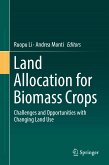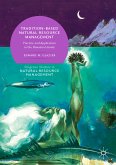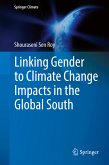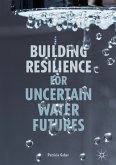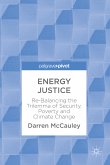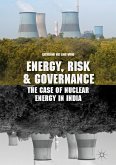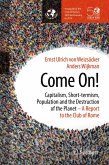This book presents a comprehensive exploration of the emerging concept and framework of telecoupling and how it can help create a better understanding of land-use change in a globalised world. Land-use change is increasingly characterised by a spatial disconnect between its main environmental, socioeconomic and political drivers and the main impacts and outcomes of those changes. The authors examine how this separation of the production and consumption of land-based resources is driven by population growth, urbanisation, climate change, and biodiversity and carbon conservation efforts. Identifying and fostering more sustainable, just and equitable modes of land use and intervening in unsustainable ones thus constitute substantial, almost overwhelming challenges for science and policy. This book brings together leading scholars on land-use change and sustainability to systematically discuss the relevance of telecoupling research in addressing these challenges. The book presents an overview of the telecoupling approach, reflects on a number of the most pressing issues surrounding land-use change today and discusses the agenda for advancing understanding on sustainable land-use change through interdisciplinary and transdisciplinary research.
Cecilie Friis is a post-doctoral researcher at the IRI THESys at the Humboldt-Universität zu Berlin, Germany. Her research focuses on land-use change, crop booms, and land grabbing in frontier regions of Southeast Asia, and she is the Co-Organiser of a Global Land Programme Working Group on Telecoupling Research towards Sustainable Transformation of Land Systems.
Jonas Ø. Nielsen is Professor of Integrative Geography at the Geography Department and Research Group Leader at the IRI THESys at the Humboldt-Universität zu Berlin, Germany. He is on the Scientific Steering Committee of the Global Land Programme and the Coordinator of a Horizon 2020 funded Innovative Training Networkon telecoupling.
Dieser Download kann aus rechtlichen Gründen nur mit Rechnungsadresse in A, B, BG, CY, CZ, D, DK, EW, E, FIN, F, GR, HR, H, IRL, I, LT, L, LR, M, NL, PL, P, R, S, SLO, SK ausgeliefert werden.
Es gelten unsere Allgemeinen Geschäftsbedingungen: www.buecher.de/agb
Impressum
www.buecher.de ist ein Internetauftritt der buecher.de internetstores GmbH
Geschäftsführung: Monica Sawhney | Roland Kölbl | Günter Hilger
Sitz der Gesellschaft: Batheyer Straße 115 - 117, 58099 Hagen
Postanschrift: Bürgermeister-Wegele-Str. 12, 86167 Augsburg
Amtsgericht Hagen HRB 13257
Steuernummer: 321/5800/1497
USt-IdNr: DE450055826
Bitte wählen Sie Ihr Anliegen aus.
Rechnungen
Retourenschein anfordern
Bestellstatus
Storno



